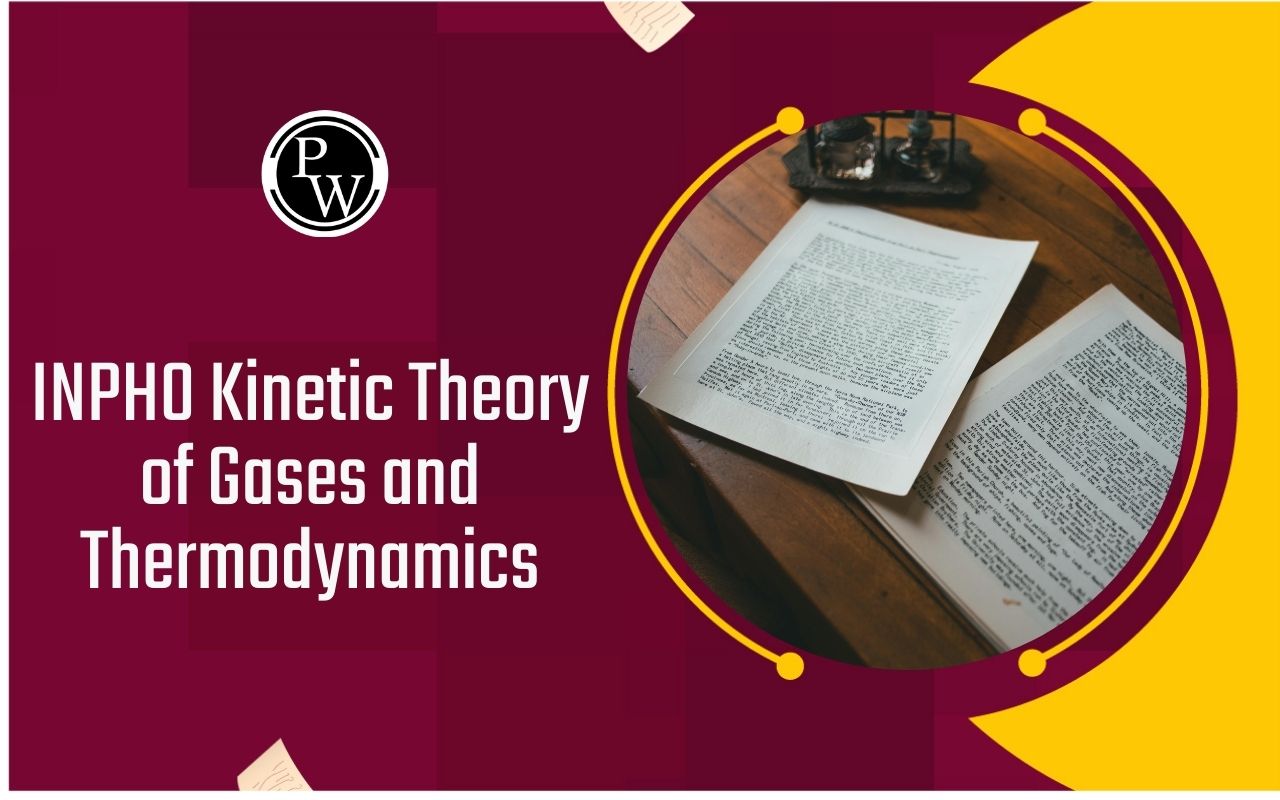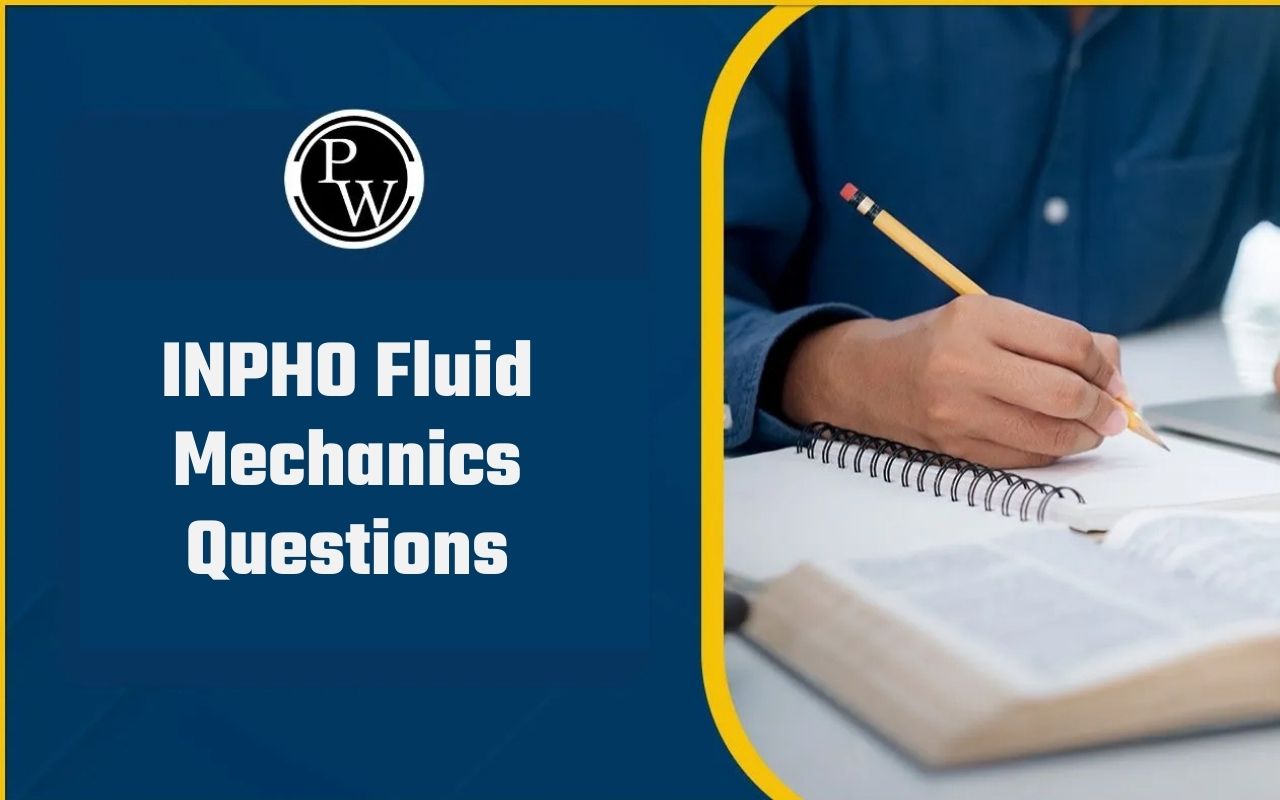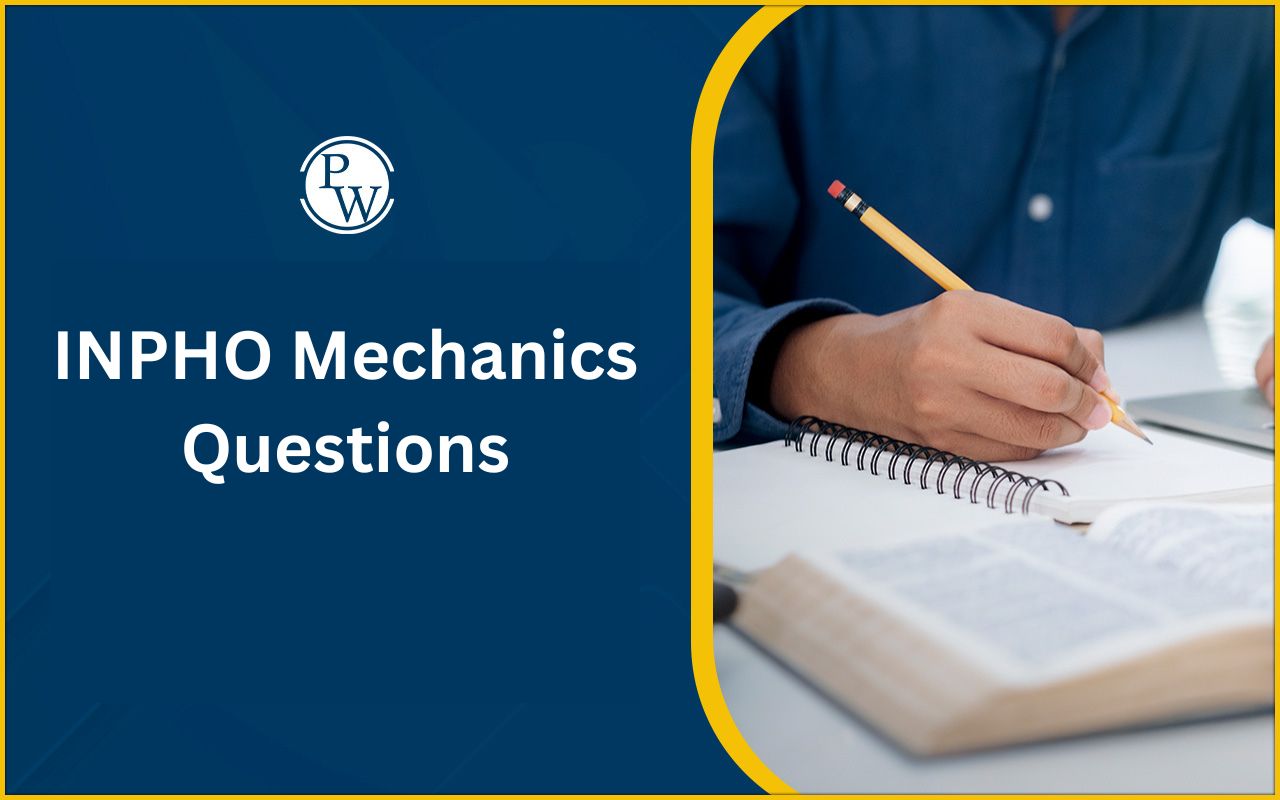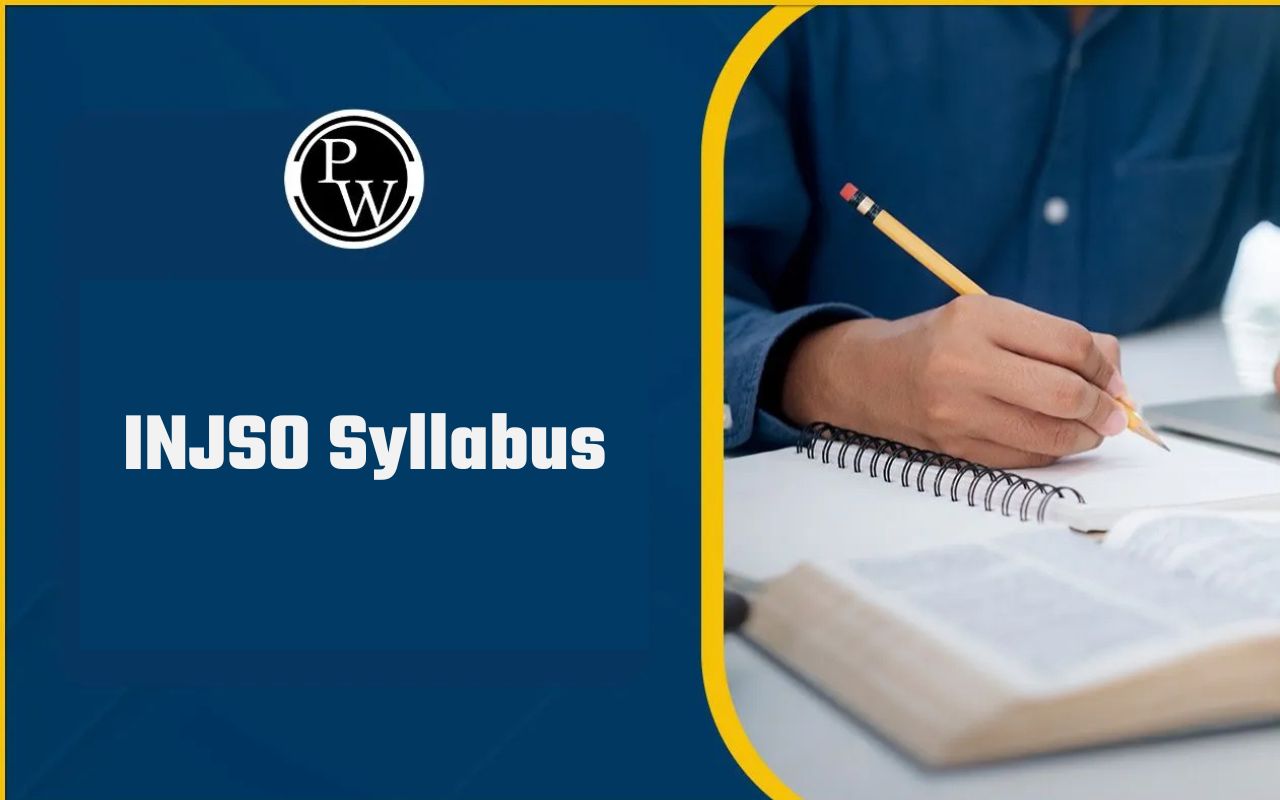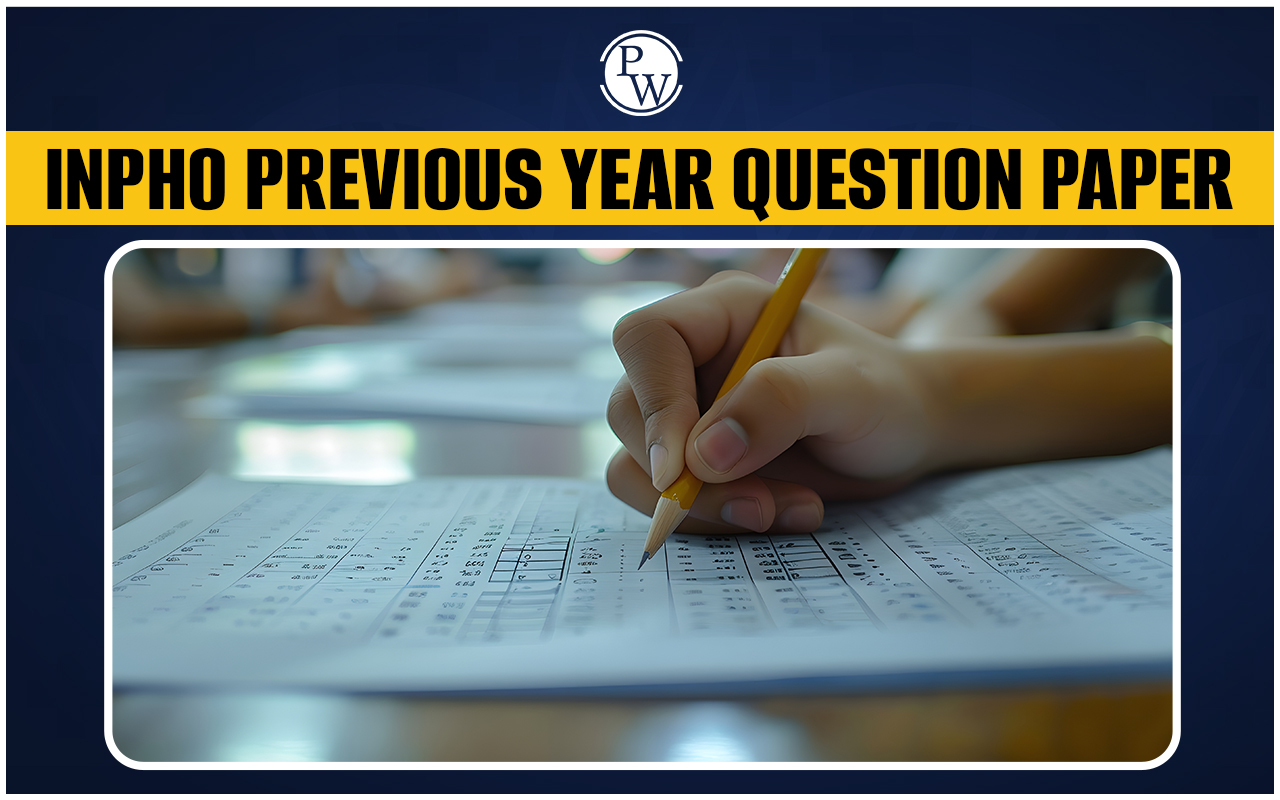
INPhO 2025: Every year the INPhO (Indian National Physics Olympiad) which is the second stage of the International Physics Olympiad is conducted by the Homi Baba Science Education Centre (HBSEC). The INPhO 2025 is a national-level examination that will be held at about 18 centers in the nation.
The list of the Higher Secondary Level students selected for the INOs according to the criteria will be published by 15th January 2025 on the IAPT website: www.iapt.org.in. Indian National Physics Olympiad evaluates students’ knowledge and understanding of various fundamental and advanced concepts of Physics.As per the trend, the INPhO 2025 is scheduled to be held on 02nd February 2025 (09:00 am to 12:00 pm) and the INPhO Registration Process has been started at https://secure.hbcse.tifr.res.in.
Confirmation of the INPhO Exam Date 2025 and all necessary instructions is available on the same website. Here is a detailed guide to help you understand everything about INPhO 2025 including the registration process, eligibility criteria, syllabus, exam pattern, answer key and solution.INPhO 2025
INPhO stands for Indian National Physics Olympiad is a prestigious competition designed to encourage students to excel in Physics. It aims to identify and develop talents in the field of Physics by providing a platform for students to showcase their knowledge and skills. Indian Physics Olympiad is the second stage in the selection process for the International Physics Olympiad (INPhO), which in turn leads to the Orientation cum Selection Camp (OCSC) in Physics. Every year there is a record of 3000 students sitting in this exam, while only the top 1% among them are selected by INPhO. All students shortlisted for INPhO must register themselves on the HBCSE website olympiads.hbcse.tifr.res.in after the publication of the list to obtain their examination admit cards. This registration is mandatory for appearing in the Indian National Physics Olympiad 2025.INPhO Previous Year Question Paper
INPhO Exam Benefits & Perks
The following advantages and benefits of the INPhO Examination will aid in your understanding of the subject:- Exposure to Advanced Concepts: The INPHO Syllabus includes subjects that are more advanced than what students learn in school. This preliminary exposure can help students prepare for JEE and other exams.
- Preparation for the International Physics Olympiad: INPHO is the second stage of the five-stages Indian Physics Olympiad program and leads to the selection for the International Physics Competition.
- Awards and Recognition: Students who join INPHO can receive awards and recognition. Improving educational performance: INPHO helps improve the performance of physics education standards.
- Practice, Revision and Academic Syllabus: Olympiad exams help students develop the habit of regular practice and revision, and help them connect with the Academic Syllabus.
INPhO 2025 Overview
INPhO empowers ambitious children to realize their dreams and gives them a chance to represent their country in the International Physics Olympiad (IPhO). It is mandatory for the NSEP qualified candidates to register themselves for the INPhO 2025, otherwise they will be disqualified from the examination. But to obtain their examination admit card, students shortlisted for INPhO must register themselves on the HBCSE website olympiads.hbcse.tifr.res.in after the publication. The application fee for the INPhO Exam is Rs.300/-. To have a quick glimpse of the Indian National Chemistry Olympiad (INPhO 2025) go through the overview table.| INPhO 2025 Overview | |
| Organization | Homi Bhabha Centre for Science Education (affiliated with the Tata Institute of Fundamental Research – HBCSE) |
| Exam Name | Indian National Physics Olympiad (INPhO 2025) |
| Registration Dates | 06th to 18th January 2025 |
| INPhO 2025 Exam Date | 02nd February 2025 (09:00 am to 12:00 pm) |
| Application Mode | Online |
| Application Fee | Rs. 300/- |
| Official Website | https://secure.hbcse.tifr.res.in |
INPhO 2025 Registration
As per the official notification details the All students shortlisted for INPhO 2025 must register themselves on the HBCSE website olympiads.hbcse.tifr.res.in after the publication of the selected list to obtain their examination admit cards. The INPhO Registration Dates are 6th to 18th January 2025. If you have qualified for INO 2025 in one or more subjects, login using your NSE Roll No., date of birth and email id. You may choose the INPhO examination centre during registration. No requests for change of examination centre will be entertained after INPhO Registration closes on 18 January 2025. Failure to register for Indian National Physics Olympiad 2025 will lead to disqualification of the candidate for INPhO. We have shared here the INPhO Registration Link.INPhO 2025 Eligibility Criteria
Before we talk about INPhO, let us know who will participate in this exciting INPhO examination. The qualifying conditions must be followed by students. Any student found to be in violation of the INPhO Eligibility Criteria will be banned from taking the tests.- The student pool of each NSEP will be divided into two groups:
- Group A: Students who are in Class XII as of November 30, 2024
- Group B: Students who are in Class XI or X as of November 30, 2024
INPhO 2025 Exam Date
On the official portal of HBCSE (Homi Bhabha Centre for Science Education) https://secure.hbcse.tifr.res.in/ino/ the INPhO Exam Date 2025 has been declared. For the students who qualify the NSEP Exam 2025 have to appear for the International Physics Olympiad 2025 on 02nd February 2025 (09:00 am to 12:00 pm). Your centre will be considered as a test centre for INPhO 2025, based on the completion of centre verification as well as decision of the committee. A few days before the INPhO 2025 exam, the INPhO Admit Card 2025 will be issued to the eligible students.INPhO 2025 Exam Pattern
Here we have tabulated below the details of the INPhO Exam Pattern 2025 for the Indian National Physics Olympiad examination. There will be 6 Descriptive Questions for 80 marks.| INPhO Exam Pattern 2024-25 | |
| Duration of Exam | Three hours |
| Test Paper Level/ Syllabus | Is broadly equivalent to senior secondary level (up to and including Class XII) of CBSE India |
| Test Medium/ Language | Question paper will be in English & Hindi (Option during registration), Type of questions – Descriptive |
| Total Number of Questions | 6 |
| Total Marks | 80 |
INPhO 2025 Syllabus
The detailed INPhO Olympiad Syllabus 2025 for each section has been discussed below. Students can refer to the below-given Indian National Physics Olympiad syllabus for preparation of INPhO exam 2025.1. Mechanics
-
Establishment of the Kinematics of a point mass.
-
Newton's Laws and Inertial systems.
-
Closed and Open systems Momentum and Energy, Power work.
-
Conservation of Energy, Impulse, Conservation of Linear Momentum.
-
Elastic forces, The law of Gravitation, Frictional Forces,
-
Potential Energy, Work in a Gravitational Field, Centripetal Acceleration, Kepler's Laws.
2. Mechanics of Rigid Bodies
-
Statics, Torque, Centre of Mass.
-
The motion of rigid bodies, Translation, Angular velocity, Rotation, Angular Acceleration, and Conservation of Angular Momentum.
-
Identification of motion of a rigid body around the fixed axis, Kinetic energy of a rotating body, Moment of inertia, External and Internal Forces.
-
Accelerated reference systems and inertial forces.
3. Hydromechanics
-
No particular questions will be asked from this topic but students should know the elementary concepts of pressure, the continuity law, and buoyancy.
4. Thermodynamics and Molecular Physics
-
Internal energy, First and Second laws of Thermodynamics, Work and Heat.
-
Model of a perfect gas, Pressure and molecular kinetic energy, Formulation of state of a perfect gas, Avogadro's number, Absolute Temperature.
-
The accomplishment of work by an expanding gas limited to isothermal and adiabatic processes.
-
The Carnot cycle, Reversible and Irreversible processes, Thermodynamics Efficiency, Entropy (statistical approach), and Boltzmann factor.
5. Oscillations and Waves
-
Harmonic oscillations and the equation of Harmonic Oscillation.
-
Harmonic waves, Transverse and Longitudinal Waves, Propagation of waves, Linear polarization, Sound waves, The Classical Doppler effect.
-
Superposition of harmonic waves, Interference, Coherent waves, Standing waves, Beats
6. Electric Charge and Electric Field
-
Conservation of charge, Coulomb's law
-
Electric field, Gauss' Law, Potential
-
Dielectric constant and energy density of the electric field, Capacitors, and Capacitance, etc.
7. Current and Magnetic Field
-
Ohm's law, Internal resistance of source, Kirchhoff's laws, Joule's law, Work Current Resistance, Work and power of direct and alternating currents.
-
The magnetic field of a current, Lorentz force, Current in a magnetic field.
-
Ampere's law
-
Law of electromagnetic induction, Lenz's law, Magnetic Flux, Self-induction, Energy Density of Magnetic field, Inductance, Permeability.
-
Voltage and Current (series and parallel) Resonances, Resistors, Inductors and Capacitors in AC circuits, Alternating current.
8. Electromagnetic Waves
-
Generation by feedback and resonance, Frequency of Oscillations, Oscillatory circuit.
-
Wave optics, Diffraction grating, Diffraction from one and two slits, Bragg reflection, Resolving power of a grating.
-
Line spectra of gases, and Dispersion and Diffraction spectra
-
Electromagnetic waves as transverse waves, Polarizers, Polarization by reflection.
-
Resolving Power of Imaging Systems. Black body and Stefan-Boltzmann’s law.
9. Quantum Physics
-
The impulse of the Photon, and Photoelectric effect and energy
-
De Broglie Wavelength and Heisenberg's uncertainty principle.
10. Relativity
-
Principle of Relativity, Relativistic Doppler effect, Addition of velocities.
-
Energy, Momentum, Relation between energy and mass, Conservation of energy and Momentum, Relativistic identification of motion.
-
Simple applications of the Bragg equation.
-
Energy levels of atoms and molecules (qualitatively), Absorption, Spectrum of hydrogen-like atoms emission.
-
Alpha- Beta-Gamma-Decomposition, half-life, and exponential decay, Absorption of radiation, Components of nuclei, Nuclear reactions, Mass defect, Energy levels of nuclei (qualitatively).
Olympiad Wallah Telegram Channel
INPhO Result 2025
The INPhO Result 2025 will be published on the official website of Homi Bhabha Centre for Science Education at https://secure.hbcse.tifr.res.in. Candidates who achieve a minimum INPhO score are invited to attend the Orientation Cum Selection Camp (OCSC). Students have to enter roll numbers and date of birth to access the INPhO results. Shortlisted candidates are going to appear for the next stage of the IPhO.INPhO 2025 FAQs
Q1. What is INPhO 2025?
Q2. When is INPhO 2025 scheduled for?
Q3. When is INPhO 2025 Registration going to take place?
Q4. What is Syllabus and Exam Pattern for INPhO 2025?

